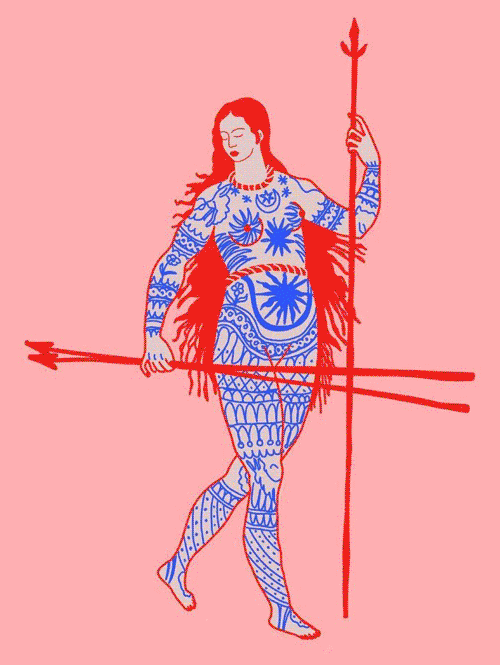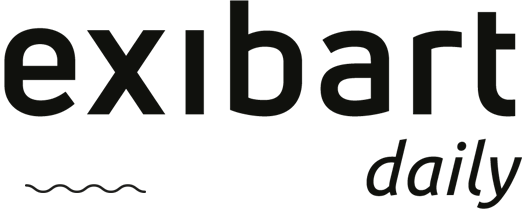Create an account
Welcome! Register for an account
La password verrà inviata via email.
Recupero della password
Recupera la tua password
La password verrà inviata via email.
-
-
- Categorie
- #iorestoacasa
- Agenda
- Archeologia
- Architettura
- Arte antica
- Arte contemporanea
- Arte moderna
- Arti performative
- Attualità
- Bandi e concorsi
- Beni culturali
- Cinema
- Contest
- Danza
- Design
- Diritto
- Eventi
- Fiere e manifestazioni
- Film e serie tv
- Formazione
- Fotografia
- Libri ed editoria
- Mercato
- MIC Ministero della Cultura
- Moda
- Musei
- Musica
- Opening
- Personaggi
- Politica e opinioni
- Street Art
- Teatro
- Viaggi
- Categorie
-
54. Biennale – Padiglione portoghese
Il progetto Scenario di Francisco Tropa rappresenta il Portogallo alla Biennale di Venezia.
Comunicato stampa
Segnala l'evento
Francisco Tropa (b. 1968) will be Portugal's representative at the 54th International Art Exhibition – La Biennale di Venezia. The artist whose work will occupy the Portuguese Pavilion at the upcoming Biennale was selected by Sérgio Mah, named curator of this official representation at the behest of the Directorate-General for the Arts of the Portuguese Ministry of Culture, the institution responsible for organising and producing the national participation.
Since the early 1990s Francisco Tropa's work has favoured the practice of sculpture, frequently in liaison with the performing arts, drawing and technical imagery. Also significant in his work is the attention paid to assembly and occupation of the exhibition space, to the placement of things, their nature and relationships, so they can be seen and experienced. Such inclinations are present once again in the show titled Scenario, specifically contrived by the artist for the Fondaco Marcello.
Inside this old warehouse next to the Grand Canal are items of various kinds: projection devices conceived as small sculptures that follow the operational principles of magic lanterns, projecting images onto plaster screens over wooden walls. The images have their origin in objects seen at the base of each projector: an hourglass, a light bulb's incandescent filament, a dead fly, a dry leaf, and various situations in which drops of water fall via a thread, a small glass plate, a tube or a tiny bottle. Besides that, various objects are placed next to some of the wall-screens. As components of a 'sculptural scene', these objects integrate the space that forms from the projectors to the walls, asserting their physical and metaphorical presence, as well as their shadow over the projected image plane.
The overall ambience is mysterious and enigmatic, a timeless place in which objects and images have a heuristic quality beyond their specific value, the search for another understanding of the nature of things, i.e., for a (non)knowledge that favours the sensitive and subjective. In this regard, the title Scenario recalls the construction of a space, the indication of a suspended space, which suggests a huge possibility: to hold our attention, to summon up the experience of creation, to empower the urgency of imagination as a way to reach the truth of nature and consequently the origins of art.
Francisco Tropa was born in Lisbon in 1968. He studied sculpture at Ar.Co – Centro de Arte e Comunicação Visual in Lisbon from 1987 to 1992, at the Royal College of Arts of London in 1992 and at the Kunstakademie Münster in 1995 and 1996. Since his first individual exhibition in 1991, Francisco Tropa's artistic output has focused mainly on sculpture, although drawing, the performing arts and more recently photography and film have become frequent and significant modes of expression in his artistic imagination and practice. Tropa's work has earned widespread critical and institutional acclaim and he is now considered one of the most unique and idiosyncratic figures on the Portuguese art scene. Individual shows of his work have been put on at major national contemporary art centres such as the Serralves Museum (1998), the Modern Art Centre of the Calouste Gulbenkian Foundation (2003) and Culturgest (2006). He has also taken part in international landmark events, among them the São Paulo Biennial (1999), the Melbourne Biennial (1999), Manifesta (2000) and the 2003 Biennale di Venezia, where he was invited to join the central exhibition 'Dreams and Conflicts' by head curator Francesco Bonami. In 2011, besides taking part in the 54th International Art Exhibition – La Biennale di Venezia, the artist will be present at the upcoming Istanbul Biennial.
Francisco Tropa currently lives and works in Lisbon.
The Portuguese exhibition will be held at the Fondaco Marcello, an exhibition space situated in a historic Venice building built in the 16th/17th century and originally conceived as a warehouse ('Fondaco'). It is very visibly located along the Grand Canal, close to the Grassi Palace, between the Academia and Rialto bridges and in front of the San Tomà vaporetto station.
Since the early 1990s Francisco Tropa's work has favoured the practice of sculpture, frequently in liaison with the performing arts, drawing and technical imagery. Also significant in his work is the attention paid to assembly and occupation of the exhibition space, to the placement of things, their nature and relationships, so they can be seen and experienced. Such inclinations are present once again in the show titled Scenario, specifically contrived by the artist for the Fondaco Marcello.
Inside this old warehouse next to the Grand Canal are items of various kinds: projection devices conceived as small sculptures that follow the operational principles of magic lanterns, projecting images onto plaster screens over wooden walls. The images have their origin in objects seen at the base of each projector: an hourglass, a light bulb's incandescent filament, a dead fly, a dry leaf, and various situations in which drops of water fall via a thread, a small glass plate, a tube or a tiny bottle. Besides that, various objects are placed next to some of the wall-screens. As components of a 'sculptural scene', these objects integrate the space that forms from the projectors to the walls, asserting their physical and metaphorical presence, as well as their shadow over the projected image plane.
The overall ambience is mysterious and enigmatic, a timeless place in which objects and images have a heuristic quality beyond their specific value, the search for another understanding of the nature of things, i.e., for a (non)knowledge that favours the sensitive and subjective. In this regard, the title Scenario recalls the construction of a space, the indication of a suspended space, which suggests a huge possibility: to hold our attention, to summon up the experience of creation, to empower the urgency of imagination as a way to reach the truth of nature and consequently the origins of art.
Francisco Tropa was born in Lisbon in 1968. He studied sculpture at Ar.Co – Centro de Arte e Comunicação Visual in Lisbon from 1987 to 1992, at the Royal College of Arts of London in 1992 and at the Kunstakademie Münster in 1995 and 1996. Since his first individual exhibition in 1991, Francisco Tropa's artistic output has focused mainly on sculpture, although drawing, the performing arts and more recently photography and film have become frequent and significant modes of expression in his artistic imagination and practice. Tropa's work has earned widespread critical and institutional acclaim and he is now considered one of the most unique and idiosyncratic figures on the Portuguese art scene. Individual shows of his work have been put on at major national contemporary art centres such as the Serralves Museum (1998), the Modern Art Centre of the Calouste Gulbenkian Foundation (2003) and Culturgest (2006). He has also taken part in international landmark events, among them the São Paulo Biennial (1999), the Melbourne Biennial (1999), Manifesta (2000) and the 2003 Biennale di Venezia, where he was invited to join the central exhibition 'Dreams and Conflicts' by head curator Francesco Bonami. In 2011, besides taking part in the 54th International Art Exhibition – La Biennale di Venezia, the artist will be present at the upcoming Istanbul Biennial.
Francisco Tropa currently lives and works in Lisbon.
The Portuguese exhibition will be held at the Fondaco Marcello, an exhibition space situated in a historic Venice building built in the 16th/17th century and originally conceived as a warehouse ('Fondaco'). It is very visibly located along the Grand Canal, close to the Grassi Palace, between the Academia and Rialto bridges and in front of the San Tomà vaporetto station.
01
giugno 2011
54. Biennale – Padiglione portoghese
Dal primo giugno al 27 novembre 2011
arte contemporanea
Location
FONDACO MARCELLO
Venezia, Calle dei Garzoni (San Marco), 3415, (Venezia)
Venezia, Calle dei Garzoni (San Marco), 3415, (Venezia)
Vernissage
1 Giugno 2011, ore 18-20
Sito web
www.dgartes.pt
Autore
Curatore








